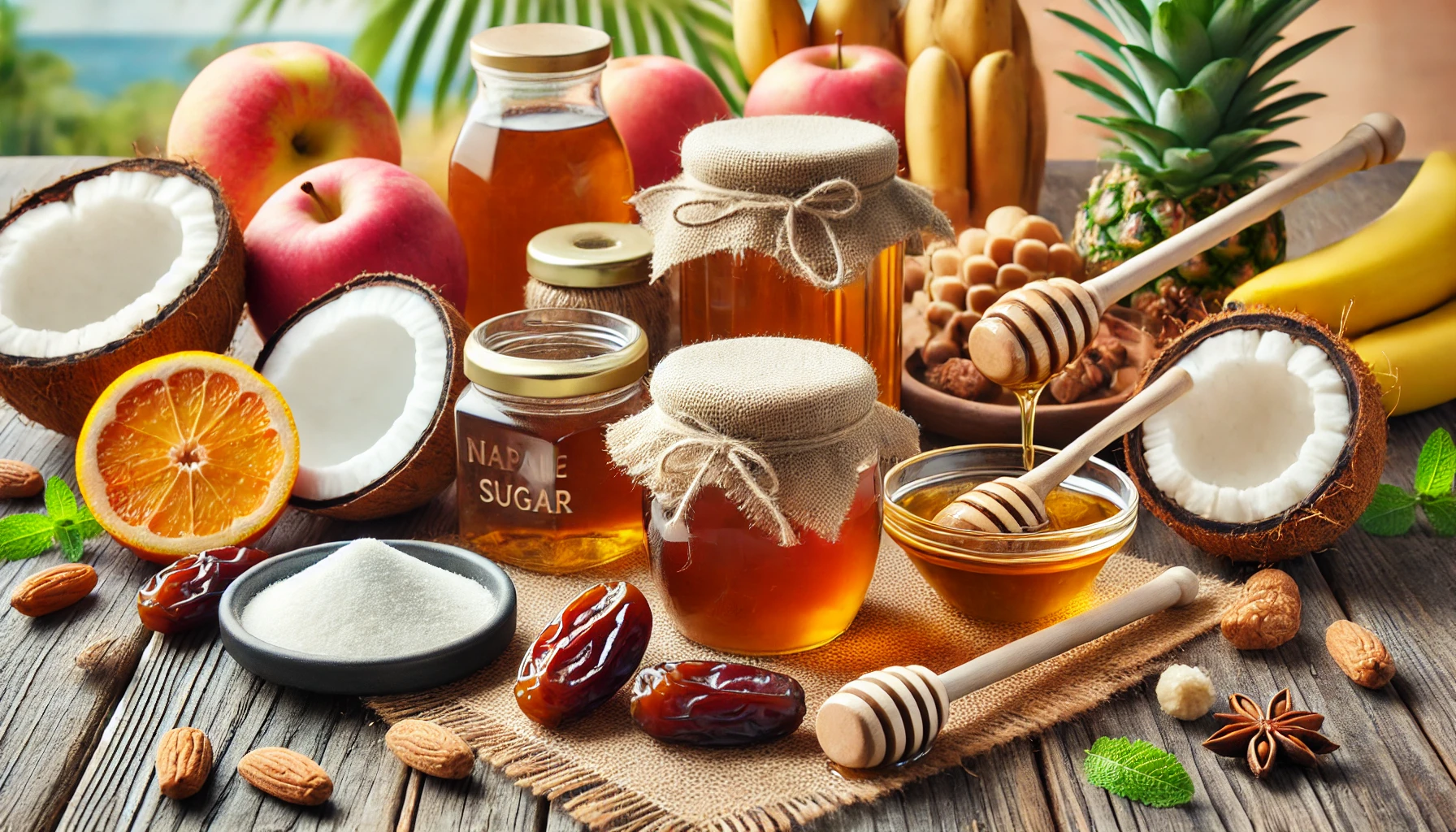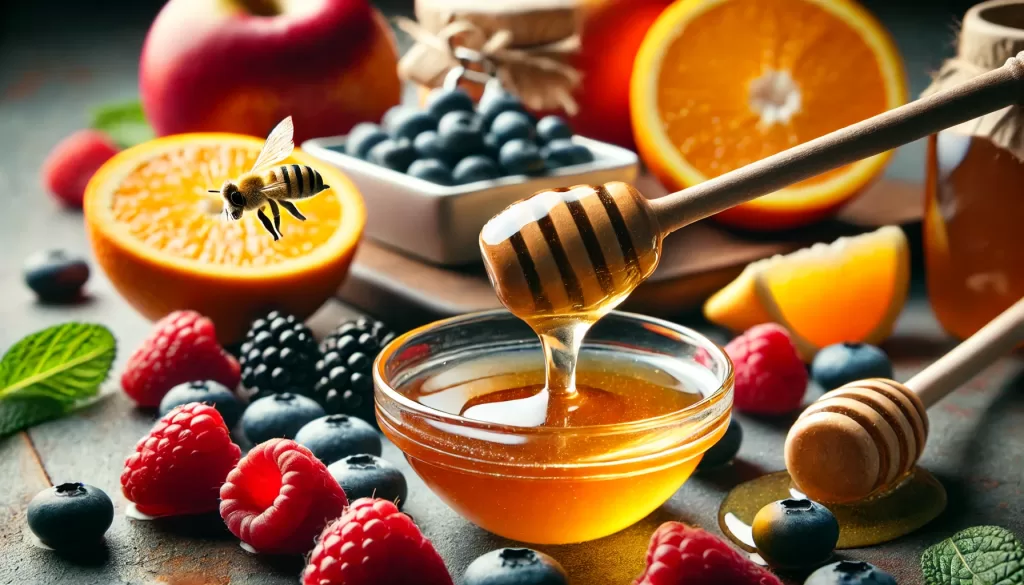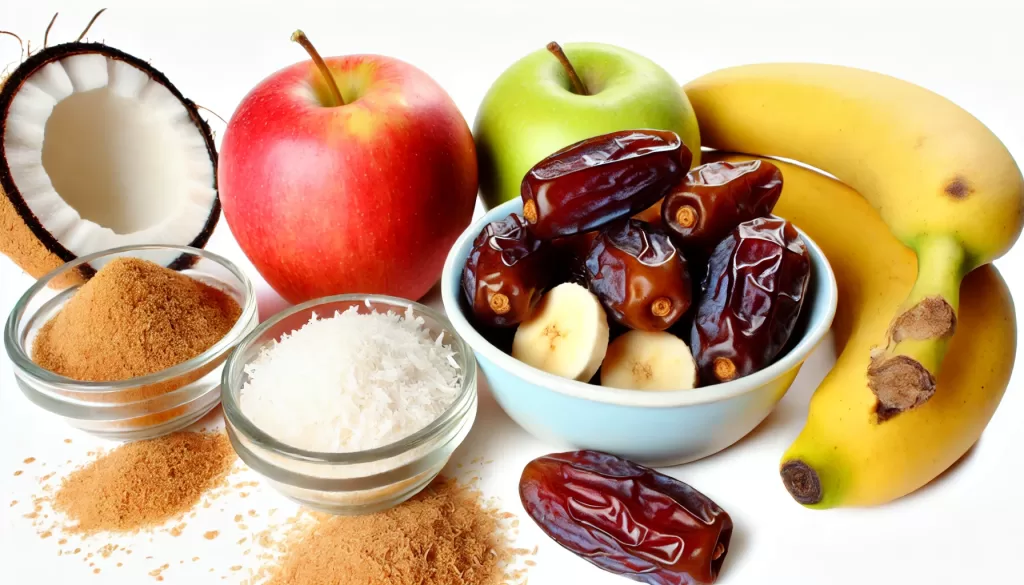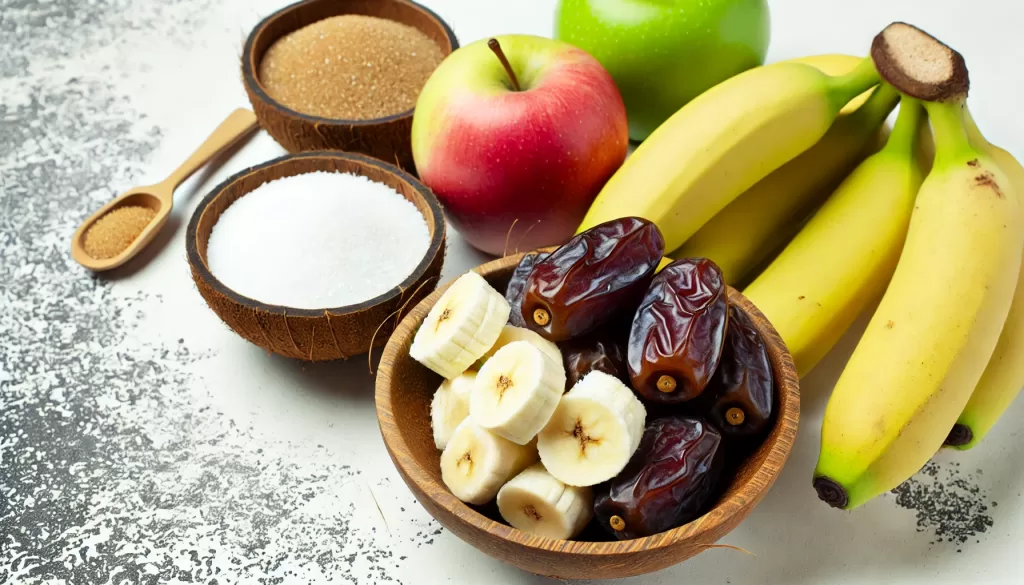
We’ve all been there—reaching for a sweet treat to perk up a dull day, only to feel that sugar crash hit hard. If you’re trying to cut down on sugar but don’t want to miss out on satisfying your sweet tooth, you’re in luck. There are plenty of delicious, natural alternatives to sugar that can sweeten your life without the guilt.
Let’s explore 9 amazing sugar substitutes you can easily incorporate into your meals and snacks!
1. Honey: Nature’s Golden Sweetener
Honey has been a go-to sweetener for centuries, and for good reason. It’s not just sweet—it’s packed with antioxidants, vitamins, and minerals. Plus, it has antibacterial properties that can boost your immune system.
How to Use Honey:
- Drizzle it over oatmeal or yogurt.
- Use it as a natural sweetener in tea or coffee.
- Add it to marinades or salad dressings for a touch of sweetness.
Just remember, honey is still calorie-dense, so use it in moderation.

9 Healthy Alternatives to Sugar You Can Use Daily
2. Maple Syrup: The Sweet Taste of Trees
Made from the sap of maple trees, this natural sweetener is rich in antioxidants and contains minerals like zinc and manganese. It has a distinct flavor that can elevate both sweet and savory dishes.
How to Use Maple Syrup:
- Pour it over pancakes, waffles, or French toast.
- Mix it into smoothies or baked goods.
- Use it as a glaze for roasted vegetables or meats.
Opt for 100% pure maple syrup to avoid added sugars and artificial ingredients.
3. Coconut Sugar: Sweet and Subtly Nutty
Derived from the sap of coconut palm trees, coconut sugar has a lower glycemic index than regular sugar, meaning it won’t spike your blood sugar as quickly. It also retains some of the nutrients found in coconut, like iron and potassium.
How to Use Coconut Sugar:
- Replace regular sugar in baking recipes.
- Sprinkle it on top of fruit or cereal.
- Use it in sauces and marinades for a mild, caramel-like flavor.
It’s a great option for those looking for a natural but familiar sweet taste.

9 Healthy Alternatives to Sugar You Can Use Daily
4. Stevia: The Zero-Calorie Sweetener
Stevia comes from the leaves of the Stevia rebaudiana plant and is a favorite among those looking to cut calories. It’s up to 300 times sweeter than sugar, so a little goes a long way!
How to Use Stevia:
- Add a few drops of liquid stevia to beverages like coffee or tea.
- Use powdered stevia in baking recipes (check conversion ratios, as it’s much sweeter than sugar).
- Mix it into yogurt or smoothies for a guilt-free sweetness.
Stevia is ideal for people managing diabetes or watching their weight.
5. Dates: Nature’s Candy
Dates are not just naturally sweet—they’re also loaded with fiber, potassium, and magnesium. They’re a whole food option, making them a healthier alternative to refined sugar.
How to Use Dates:
- Blend them into smoothies or energy bars.
- Use date paste as a natural sweetener in baking.
- Chop them up and sprinkle them on oatmeal or salads.
Dates bring both sweetness and nutrition to the table, making them a win-win.
6. Agave Syrup: Smooth and Sweet
Agave syrup is derived from the agave plant and has a lower glycemic index than sugar. It’s sweeter than regular sugar, so you can use less of it.
How to Use Agave Syrup:
- Stir it into tea, coffee, or cocktails.
- Drizzle it over pancakes or desserts.
- Use it in salad dressings or marinades.
While it’s a better option than sugar, agave syrup is still high in fructose, so moderation is key.
7. Monk Fruit Sweetener: Sweet and Calorie-Free
Monk fruit sweetener is made from the extract of monk fruit, a small melon-like fruit native to Southeast Asia. It’s naturally calorie-free and doesn’t affect blood sugar levels.
How to Use Monk Fruit Sweetener:
- Add it to coffee, tea, or smoothies.
- Use it in baking as a sugar replacement.
- Sprinkle it on fresh fruit for an extra burst of sweetness.
It’s a fantastic option for diabetics or anyone looking to avoid calories.
8. Molasses: Sweet and Nutrient-Dense
Molasses is a byproduct of sugar production but retains many of the nutrients stripped from refined sugar, like iron, calcium, and magnesium. Its deep, rich flavor makes it perfect for certain dishes.
How to Use Molasses:
- Use it in baking, especially for gingerbread or cookies.
- Add it to marinades for meats or vegetables.
- Stir it into oatmeal or porridge for a flavorful twist.
Molasses isn’t for everyone, but its unique taste can add depth to recipes.
9. Fruit Purées: Sweet and All-Natural
Pureed fruits like bananas, apples, or pears are fantastic natural sweeteners that also bring vitamins, minerals, and fiber to your meals.
How to Use Fruit Purées:
- Replace sugar in baking with mashed bananas or applesauce.
- Blend them into smoothies or yogurt.
- Use them as a natural topping for pancakes or waffles.
They’re perfect for adding sweetness without any refined sugars.

9 Healthy Alternatives to Sugar You Can Use Daily
Making the Transition Easier
Switching from regular sugar to healthier alternatives might feel a bit challenging at first, especially if you’re used to the intense sweetness of refined sugars. But don’t worry—you don’t have to overhaul your habits overnight. Small, consistent changes will help you adapt without feeling deprived.
Here’s How to Make It Happen:
- Start Gradually: Replace sugar in one meal or snack at a time. For example, swap your morning coffee sweetener with a drop of stevia or a teaspoon of honey.
- Experiment with Recipes: Try baking with alternatives like coconut sugar or date paste to get a feel for how they affect flavor and texture.
- Listen to Your Taste Buds: Over time, your palate will adjust to the more subtle sweetness of these alternatives. You might even find you need less sweetness overall.
The key is patience—your body and taste buds will thank you for making the switch!
The Benefits of Reducing Sugar
Cutting back on refined sugar isn’t just about avoiding empty calories. It has a host of health benefits that can improve your overall well-being.
Here’s What You Can Expect:
- More Stable Energy Levels: No more sugar highs followed by crashing lows.
- Better Weight Management: Many alternatives have fewer calories or a lower glycemic index.
- Improved Skin Health: Excess sugar can lead to inflammation and breakouts.
- Lower Risk of Chronic Diseases: Reducing sugar intake can help lower your risk of diabetes, heart disease, and more.
And let’s not forget the mental clarity that comes from avoiding sugar-induced brain fog!
The Importance of Moderation
While these alternatives are healthier than refined sugar, they’re not a free pass to overindulge. Many natural sweeteners still contain calories and can affect blood sugar levels if consumed in large quantities.
Tips for Staying Balanced:
- Keep an eye on portion sizes. A teaspoon of honey or maple syrup is often enough to sweeten your dish.
- Pair sweeteners with high-fiber or protein-rich foods to slow the absorption of sugars.
- Rotate between different alternatives to avoid over-relying on one type.
The goal isn’t to eliminate sweetness from your life—it’s to enjoy it in a healthier, more mindful way.
Your Sweet-Tooth Toolkit
To make your journey even smoother, here’s a quick list of essential items to have on hand as you transition to sugar alternatives:
- A Variety of Sweeteners: Stock your pantry with honey, maple syrup, coconut sugar, or stevia to suit different recipes and cravings.
- Measuring Tools: Accurate measurements help you avoid overdoing it with these potent alternatives.
- Recipe Inspiration: Bookmark some recipes that use these sweeteners so you’re always ready to whip up something delicious.
Being prepared makes it easier to stay on track and enjoy the process of discovering new flavors.
FAQs About Sugar Alternatives (Continued)
4. Are natural sweeteners safe for kids?
Yes, many natural sweeteners like honey (for kids over one year old), maple syrup, and fruit purées are safe and nutritious for children. Always consult your pediatrician if you’re unsure.
5. Can I use sugar alternatives in savory dishes?
Absolutely! Sweeteners like honey and maple syrup can balance out savory flavors in marinades, dressings, and glazes.
6. Do sugar alternatives taste different?
Some do, like stevia or monk fruit, which can have a unique aftertaste. It’s all about experimenting to find what works best for your palate.
Final Encouragement
Changing your relationship with sugar is a journey, not a sprint. The fact that you’re exploring healthier alternatives shows you’re on the right path. Give yourself credit for every small step you take—it all adds up to a healthier you.
The best part? These natural sweeteners don’t just replace sugar; they add their own unique flavors and benefits to your meals. Whether it’s the rich warmth of molasses, the subtle caramel notes of coconut sugar, or the bright, fruity sweetness of dates, there’s so much to enjoy.
So go ahead, experiment with these 9 amazing sugar alternatives, and rediscover the joy of sweet treats—without the guilt. You’ve got this!







 Previous Post
Previous Post
